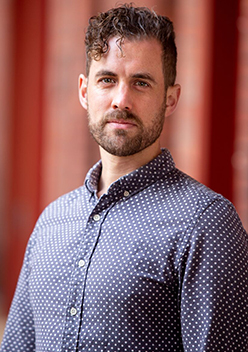
The traditional view of healthcare has focused on healthcare professionals as providers of care and patients as recipients. In general practice, hopefully our viewpoint is more evolved and recognises the important contributions all individuals make to care, for themselves and others. This could be a mother comforting the toddler with an ear infection, a husband caring for his wife with heart failure, neighbours doing the shopping for the elderly couple next door, or the daughter nursing her dying father.
Many actors are integral to healthcare, but act outside formal care provision. Informal health collectives are numerous, and act in many ways to improve and provide healthcare. Common examples include Alcoholics Anonymous, cancer support groups, advocacy groups, internet chat rooms and community groups.
Historically, many of these groups have had significant impacts on healthcare development, shaping the current Australian health landscape. Parents groups are a well-known example of informal collectives initiated by individual laypeople that have now become part of routine postnatal care. They originated in the 1940s, when child-maternal health nurses saw the huge benefits of the support groups that had developed between first-time mothers. These groups engage in many forms of health provision: sharing of information, practical assistance, emotional support and social connection during a period that can be entirely isolating.
These informal groups can have significant health impacts on an individual level. An increasing amount of evidence associates social isolation with rising health expenditure and worse health outcomes. A recent initiative in an English town, Compassionate Frome, focuses on supporting people with chronic illnesses. Instead of relying on formal support services, volunteers link unwell people with existing community and informal groups. Their efforts resulted in a 14% decrease in emergency presentations, compared to a 29% increase in the control group, and a corresponding decrease in unplanned hospital admissions. Many of the other benefits of informal networks are difficult to quantify, such as social connectivity and emotional wellbeing, but they are just as important.
Our research has examined how people with cancer use informal support networks throughout their treatment. This included cancer support groups, but also those less-visible relationships that arose through cancer treatment, perhaps with another patient sitting next to them in chemotherapy or an old acquaintance who’d been through a similar cancer diagnosis. We interviewed 31 people with cancer, their family members and health professionals about their experiences with informal support networks.
The research was supported by the RACGP Foundation, the Primary Care Collaborative Cancer Trials Group, and an National Health and Medical Research Council Postgraduate Scholarship. I’ll soon submit this as part of a larger piece of work for my PhD thesis. I’d like to thank the RACGP Foundation for its support – it’s been greatly appreciated and has enabled this study to take place.
The manner in which individuals used these groups reflected many aspects of formal care provision: access to information, practical assistance, and emotional and social support. The information shared covered the similar topics of illness and treatment as those provided through the formal system, but were often grounded in personal experiences, which were easier for people to relate to. Individuals perceived these supportive networks as significant to their wellbeing, offering a space where they could connect and share with others who were experiencing the same difficulties, challenges and potential for loss.
The challenge I pose in this piece is for us all to think outside of formal health supports when considering patient care. Does the person diagnosed with early-stage breast cancer need a referral to an exercise physiologist? Or could they gain greater benefits from joining a breast cancer walking group, connecting with and learning from fellow individuals with breast cancer. Are there any potential community supports for the elderly and socially isolated patient who’s frequently admitted to hospital?
Australia has an ageing population with rising rates of chronic diseases, and to meet these future challenges massive support external to the formal health system will be required that incorporates non-professional participation and responsibility.
Dr Matt Grant